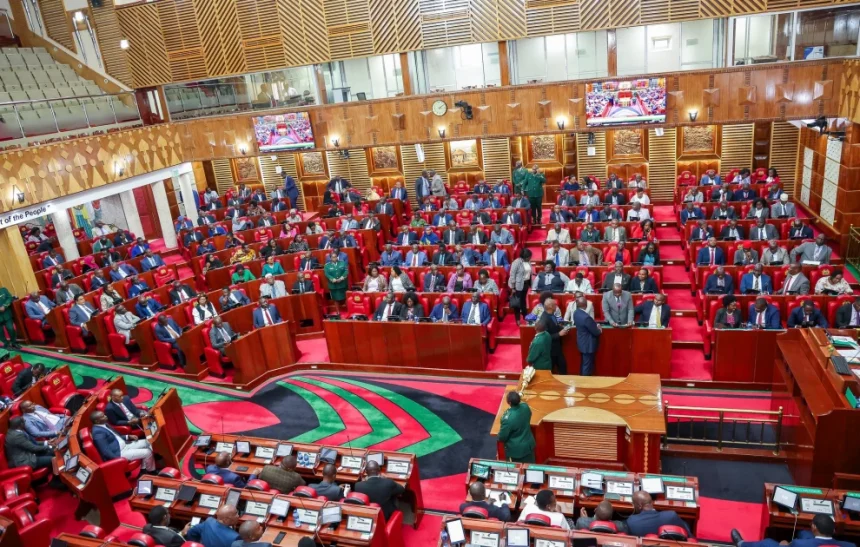A contentious proposal in the Finance Bill 2025/2026 that sought to grant the Kenya Revenue Authority (KRA) access to taxpayers’ personal and financial data has been dropped.
The proposal, which faced strong opposition from a majority of Members of Parliament during debate, would have given KRA unrestricted access to trade secrets and sensitive personal information, including mobile money and bank transactions, as part of efforts to crack down on tax evasion.
On Thursday afternoon, the National Assembly passed the Finance Bill 2025 by acclamation, clearing the way for it to be signed into law by the President.
In its report on the Bill, the Finance Committee chaired by Molo MP Kuria Kimani noted that after deliberation, it concluded that the provision granted KRA access to personal data “does not meet the constitutional threshold set under Article 3I(c) and (d) of the Constitution of Kenya, which guarantees every individual the right to privacy.”
“The Committee also referenced Section 51 of the Data Protection Act, which outlines specific conditions under which exemptions to data protection may be permitted,” it says.
The committee further submits that the existing legal framework already provides sufficient authority for the tax authority to access relevant data, provided they obtain a judicial warrant.
“This ensures that tax enforcement powers are exercised within a framework of legal oversight and due process,” the MPs in the committee said.
Treasury Cabinet Secretary John Mbadi had repeatedly defended the move as a necessary step to improve tax compliance, citing the challenges of voluntary compliance and the tendency among even well-off individuals to under-declare their incomes.
“If it were up to us, even those earning well like me would not be honest in paying taxes. I will probably return 50-60 per cent of what I am supposed to,” Mbadi told Citizen TV last week.
“People love convenience, especially where money is involved. If you just let Kenyans pay taxes at will without being followed up, they will not,” he argued then.
Similarly, KRA chairperson Ndiritu Muriithi had argued that giving KRA the said powers would enhance revenue collections and seal tax evasion loopholes.
Muriithi argued that of the 20 million Kenyans registered for KRA PINs, only about 10 million file their tax returns, and the majority (six million) file nil returns.



